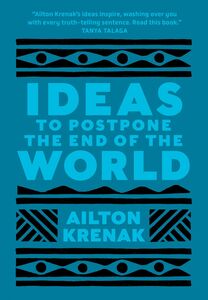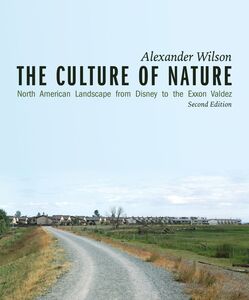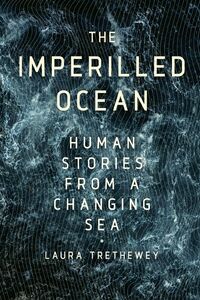
“Ailton Krenak’s ideas inspire, washing over you with every truth-telling sentence. Read this book.” — Tanya Talaga, bestselling author of Seven Fallen Feathers
Indigenous peoples have faced the end of the world before. Now, humankind is on a collective march towards the abyss. Global pandemics, extreme weather, and massive wildfires define this era many now call the Anthropocene.
From Brazil comes Ailton Krenak, renowned Indigenous activist and leader, who demonstrates that our current environmental crisis is rooted in society’s flawed concept of “humanity” — that human beings are superior to other forms of nature and are justified in exploiting it as we please.
To stop environmental disaster, Krenak argues that we must reject the homogenizing effect of this perspective and embrace a new form of “dreaming” that allows us to regain our place within nature. In Ideas to Postpone the End of the World, he shows us the way.
Book details
-
Publisher
-
Original text
Yes -
Language
English -
Publication date
-
Page count
88 -
Translator
-
Theme
About the author
Ailton Krenak
AILTON KRENAK was born in Minas Gerais, Brazil, in the Krenak homelands along the Doce River Valley, a region where mining operations have severely affected the ecology. A socio-environmental activist and campaigner for Indigenous rights, he organized the Alliance of Forest Peoples, which unites riverine and Indigenous communities throughout the Amazon. He has consistently been one of the best-known campaigners in the movement set in motion by the Indigenous Awakening in the 1970s and was a key figure in the formation of the Union of Indigenous Nations (UIN), which brought together 180 different Indigenous groups across the country in a unified front to push for rights. In his capacity as a journalist, producing videos and making television appearances, he has pursued an educational and environmental agenda. His struggles in the 1970s and 1980s were instrumental in the inclusion of Chapter VIII of the Brazilian Constitution (1988), which guaranteed Indigenous rights to their ancestral homelands and traditional cultures — on paper at least. He was co-author of the UNESCO proposal that led to the creation of the Serra do Espinhaço Biosphere Reserve in 2005, and remains a member of its managing committee. He was awarded the Order of Cultural Merit by the President of the Republic in 2016, and holds an honorary doctorate from the Federal University of Juiz de Fora, Minas Gerais. He is the author of two previous books, and was recently featured in the Netflix documentary series Guerras do Brasil.doc (Wars of Brazil).






